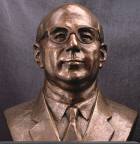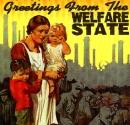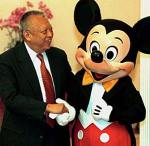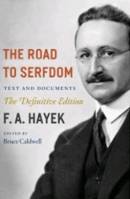The Standard reports that its slightly more up-market British weekly counterpart The Economist has declared the death of laissez-faire in Hong Kong now the city has passed a minimum wage law.
How market-led was Free Hong Kong, really? Milton Friedman idolized the city’s 1950s-1980s triumph. Who can blame him for getting a kick out of  1960s Financial Secretary John Cowperthwaite’s eschewal of statistics as a way of warding off the temptation to plan? However, it was Cowperthwaite who also saw no point in education spending; free, compulsory elementary schooling was introduced only in 1971, leaving us with the semi-literate older-generation work force that can’t adapt to today’s services-based economy.
1960s Financial Secretary John Cowperthwaite’s eschewal of statistics as a way of warding off the temptation to plan? However, it was Cowperthwaite who also saw no point in education spending; free, compulsory elementary schooling was introduced only in 1971, leaving us with the semi-literate older-generation work force that can’t adapt to today’s services-based economy.
Fans of free-market Hong Kong also ignored the major role played by the government in housing, its support for textiles, the port and other sectors, and its transfer of land in lieu of funds to finance projects like the MTR – a lame cheat that makes spending look smaller than it really is (just as the hidden levies raised via artificially high land prices give an illusion of low taxes). They also failed to pick up the possibility raised by Leo Goodstadt that laissez-faire in the old days was a way for a small government with no popular mandate to keep a rapacious business sector from plundering the place. Officials could deflect businessmen’s requests for favours by pointing to the lack of government help for the refugees pouring over the border.
 Still, Hong Kong has undeniably drifted towards statism. A rise in social expenditure was inevitable following the 1960s, when communist protestors tried to topple the colonial authorities (as they essentially succeeded in doing in Macau). Growing public expectations of government were inevitable after the educated, post-refugee generation became middle class. To some, last colonial governor Chris Patten drove a big nail into the coffin of laissez-faire when he boosted welfare and introduced a compulsory retirement savings system.
Still, Hong Kong has undeniably drifted towards statism. A rise in social expenditure was inevitable following the 1960s, when communist protestors tried to topple the colonial authorities (as they essentially succeeded in doing in Macau). Growing public expectations of government were inevitable after the educated, post-refugee generation became middle class. To some, last colonial governor Chris Patten drove a big nail into the coffin of laissez-faire when he boosted welfare and introduced a compulsory retirement savings system.
What happened after the handover, however, was far more important in hurrying Hong Kong along the corporatist road to Singapore-style economic planning – which is the real complaint of the Economist feature. The collapse in asset prices and (at least nominal) economic growth following the Asian financial crisis swiftly showed the first post-1997 Hong Kong government to  be panicky, incompetent and out-of-its-depth. The people needed a leader but got Tung Chee-hwa. There was nothing to do but despair; almost overnight, Hong Kong seemed to shed optimism and self-reliance, and a sense of helplessness and an entitlement mentality set in. The public also turned on the hapless Crop-Haired One and started to torment him mercilessly.
be panicky, incompetent and out-of-its-depth. The people needed a leader but got Tung Chee-hwa. There was nothing to do but despair; almost overnight, Hong Kong seemed to shed optimism and self-reliance, and a sense of helplessness and an entitlement mentality set in. The public also turned on the hapless Crop-Haired One and started to torment him mercilessly.
The major increase in government intervention began here: from propping up the property and stock markets, to handing out land to Disney and Cyberport, to picking ‘pillars’ and other sectors to broaden the economic base, to seeking economic favours from Beijing.
The process came in several intertwining strands. One was sheer panic, flinging money and resources at things like technology start-ups in the hope of stimulating economic activity or at least a flicker of public appreciation. A second was a sincere conviction among many of the post-handover elite that the hands-off colonial policy had been negligent, and ‘we [Chinese] can do better’. Hence the obsession with R&D, endless hubs, and the rise of state-sector empires like the Mortgage Corporation and a semi-nationalized stock exchange. A third, where self-interest got into the action, was rank hand-outs to the tycoons; Goodstadt’s balance of non-favouritism went out the window, and the developers in particular have been gorging themselves stupid at everyone else’s expense ever since.
A fourth was contrived benevolence from the Central People’s Government to its helpless compatriots newly returned to the loving fold of the motherland. With combined solemnity and joy, Hong Kong officials announced shipments of medical gowns during SARS, a symbolic free-trade agreement called CEPA and a flood of Mainland tourists. These ‘gifts’ came with carefully orchestrated campaigns to warn the restive folk of Hong Kong that their city was in danger of being ‘marginalized’ and ‘left behind’. In other words, undermining the community’s old confidence had become a way of bringing it to heel; growing popular acceptance of intervention was at least partly just a side-effect.
 Hong Kong’s march to serfdom, or at least to rule by meddling, self-satisfied sub-technocrats, is far from complete. As the Economist says, the place is still vibrant, just not as much as it was. Between them, property tycoons’ cartels and bureaucrats have cornered or restricted economic opportunities while ignoring a growing gap between rich and poor. This has raised the prospect of instability, and so pressure mounts on the genius bureaucrats to plan new industries (creative, health care, wine hub, blah blah) and resort to such band-aids as a minimum wage. The alternative is serious reform, notably of the land system, to end the cartels’ parasitical behaviour and level the playing field to give everyone else a chance – and no-one in power can even start to conceive of such an idea.
Hong Kong’s march to serfdom, or at least to rule by meddling, self-satisfied sub-technocrats, is far from complete. As the Economist says, the place is still vibrant, just not as much as it was. Between them, property tycoons’ cartels and bureaucrats have cornered or restricted economic opportunities while ignoring a growing gap between rich and poor. This has raised the prospect of instability, and so pressure mounts on the genius bureaucrats to plan new industries (creative, health care, wine hub, blah blah) and resort to such band-aids as a minimum wage. The alternative is serious reform, notably of the land system, to end the cartels’ parasitical behaviour and level the playing field to give everyone else a chance – and no-one in power can even start to conceive of such an idea.
 Reasons for at least a few shreds of optimism, because it should take more than a decade or two of bad governance to crush the Big Lychee’s old can-do spirit: mounting disgust even among officials and certainly in some business quarters at the sheer putrid greed of the property developers; Beijing’s recent decision to make a concession on political reform to the Democratic Party and thus the non-tycoon/non-patriot/non-bureaucrat majority in Hong Kong whose interests have hitherto been disregarded; and signs of a growing body of tentative, still-deniable support among some business and political figures for slightly scary but at least non-brain-dead CY Leung as next Chief Executive. That’s as optimistic as it gets. Oh, and under the glitter Shanghai and Singapore are laughable dumps – there’s always that to fall back on.
Reasons for at least a few shreds of optimism, because it should take more than a decade or two of bad governance to crush the Big Lychee’s old can-do spirit: mounting disgust even among officials and certainly in some business quarters at the sheer putrid greed of the property developers; Beijing’s recent decision to make a concession on political reform to the Democratic Party and thus the non-tycoon/non-patriot/non-bureaucrat majority in Hong Kong whose interests have hitherto been disregarded; and signs of a growing body of tentative, still-deniable support among some business and political figures for slightly scary but at least non-brain-dead CY Leung as next Chief Executive. That’s as optimistic as it gets. Oh, and under the glitter Shanghai and Singapore are laughable dumps – there’s always that to fall back on.

A+
CY Leung?? He tries so hard but no one, rich or poor, seems to like him. Maybe its his self-satisfied smirk or the way his hairy nostrils flare up.
There are certain ironies as regards the cries of some of the usual suspects, that HK will lose its laissez-faire status. Given that Colbert’s theory was designed at the time to benefit the manufacturing sector, it’s interesting that some within our own manufacturing sector, who have continued to benefit from direct Government intervention in the form of production quotas for garment manufacturing, dare talk of the need for a level playing field and that Government intervention on say wages is somehow wrong. Similar voices are also against any Government plans to create a more laissez-faire business environment in areas where either monopolies or oligopolies may exist. Our oligarch’s can’t have it both ways.
Isomoliu,
Likability doesn’t come into it just a nod or handshake from one of the CCP boot polished hair boys. Three way race for the next CE;
Henry the Horse
Rita the Patriot
CY Leung
Which is the most scary?
PS. Hemlock you are right. I didn’t hear any cries about Government intervention when Cyberport was gifted to the Li’s. Don’t get me started on Tsang’s ‘positive non-interventionism’.
Maugrim, regrettably you are wrong in the last phrase of your first post: our oligarchs are making a very good go at having it both ways
Damnation!! To think I blew $150 on “We Deserve Better” in Dymocks, probably enriching some tycoon/landlord into the process, when I could have waited a few years and got the whole book précised for nothing in this (excellent) blog.
I bought it too, but claimed it as a work-related tax deduction. After reading it, I felt I was at least entitled to HK$22.50 of my taxes back.
Yesterday, flying back to HK from Bangkok on Emirates Air, accompanied by Dubai-based glum-faced Russians and shifty-eyed Lebanese, I read That Economist for free; and was reminded, once again, why I let my subscription lapse in 1986.
Not only was the article factually incorrect about HK’s minimum wage law (and trivial points such as land policy exempting the Anglican Church’s St John’s Cathedral); but also it disclosed that the Government was involved in business and then proceeded to predict a future for HK almost as absurd as the one it predicted in 1997.
That Economist’s article on the Baltic Dry Index uses the same facile analysis. A really close relative of mine sails on Capesized and Panamax. What is actually happening on the oceans and what The Economist reports, are two entirely different things. The more interesting point – missed by The Economist – is that a Malaysian is trying to buy the ownership of the Index so he can redesign it.
For the past 30 years, The Economist has never once correctly called any country’s economy’s, or industry’s, future course of any description, whatsoever.
Gunlaw is actually right – the Economist has never got over the fact that it incorrectly foretold the demise of HK back in the early 90’s, and has never forgiven us for not shriveeling up and imploding as they predicted…. Since then it has never been able to resist any chance for a cheap snigger at HK.
Incidentally, when oil was $10 a barrel, the Economist boldly predicted it going to $5…..
If Gunlaw stopped his subscription to The Economist in 1986, how does he know they’ve been wrong “for the past 30 years”?
@Grumpy:
It has happened already. Would it take a biblical type apocalyptic scenario for you to get it?
Actually it will probably happen again shortly .. since we didn’t figure it out the last time .. or time before .. or the time before .. or ………..
I do love that pic of Tung Chee Wah shaking hands with mickey mouse. The original caption was ” WHICH OF THESE TWO IS THE REAL CARTOON FIGURE ? “
Peter B: the real caption was “Mickey Mouse (right) and Tung Chee-Wah.”